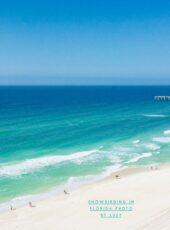
August 21, 2011 The last to leave the “nest”, our youngest child; Chandra.
The finale of our life as “doting” parents is now on the horizon.
The beginning of another’s is thrust into the life of adulthood.
An Unsolved Mystery
Compelled by the last to leave our nest, a unsolved mystery of a Norwegian immigrant, a great uncle’s fate, lead Suzy to a cemetery at a insane asylum.
The unsolved mystery and the “last to leave our nest” caused me to reflect on how a mother; a mother, my great grandmother I only known as a name in a Census; a Census taken in the 1800’s in Norway. My maternal grandfather’s, Reinert Boe’s mother; I wonder how she may have felt knowing one of her sons; Tobias was leaving, boarding a ship to a new land with the dream of FREE land? Did she feel the tug at her heart as I was feeling now? What were her dreams, her hopes for her child? Would it have been as I feel; hope for a good, prosperous, safe journey?
I can only guess. Maybe she felt the pride as I do seeing my Chandra taking the step into the new “world”; feeling it is a good move; it is time. Did she anticipate the fate which Tobias appeared to have stumbled into? Probably not.
Curiosity, tugged at me, a nudge to see the evidence of the last earthly connection to a son, a grandmother, a mother would have. My only connection was the newspaper clipping and a letter from my great grandmother I had found in the trunk; the trunk my Grandfather Reinert kept from his travel over the ocean when he came for the FREE land.

This tugging, the curiosity compelled me to ask my husband, Chandra’s dad, Jeff to stop in Jamestown ND, on the way back from dropping Chandra off at her new home at the North Dakota State University in Fargo ND. Jamestown is a favorite place for us to stop and stretch our legs when driving from Fargo to Mandan. Our destination was near a Chinese Buffet so we ate first and headed to the place I wanted to visit.
the “Country Club”
We traveled down the road, a sign pointing east stating the “Country Club”.
We both kind of chuckled at the sign saying “Country Club”, we knew the road also lead to the State Hospital, the asylum, the sanitarium, the “nut” house, a place for the “insane”, for the ones who did not fit in with the rest of our “world”. The State Hospital just the thought is creepy, not healing. We did not find a Country Club; with only my intuition to directs us. I said to Jeff, “Take a left.” Leading us on a winding road to an insurmountable fence with barb wire spiraling on top of it. I see a door opened on a long brick building. Looking for someone to tell us where we could find the cemetery of the State Hospital, we stopped. I got out of the car and peeked in the door. My “creepy” radar went off; this place looks like a perfect set for a horror picture show; grated see-through floors; huge boilers; endless feet of pipe above and around me. The door is open. I call out. No one answers. I leave the building.
I came back out to the car, not yet getting in I said, “ I think it may be over there somewhere pointing to the southeast.” again only my intuition to guide me.
A vehicle is approaching; a correctional officer’s vehicle. The ground now houses a prison. The vehicle stops. I walked towards his car. He rolls the passenger window down. I told him I was looking for the hospital’s cemetery. He said pointing to the southeast; “It is over near the power plant.”
I do not have a clue; my look must have gave him the sense of this. He says “Follow me.” He led us out back on the “Country Club” road; taking the road with a sign stating “DOT fueling” . Proceeding south, he than stops. I get out and go to his car, he points to the evergreen trees in the distance. He says, “I believe it is where those trees are. I don’t know if you can get in there though.” He turns his vehicle around and leaves.
A sign on the fence tells us we have arrived. A cattle gate with a rusted chain and a rusted paddle lock is all that stood in the way of the “last earthly connection” I sought

North Dakota State Hospital Cemetery
Jeff climbed over the fence first, and then I managed to climb it even though I had just received an artificial hip in February and my other artificial hip was only 4 years old
We walked down a gravel path with soybeans on the east side of the fence, and mostly grasses on the other side. Arrivingat the evergreen tree another gate is open, headstones dot a manicured lawn, an empty flag pole with a cold cement bench sitting underneath it.
We start looking; I didn’t have the newspaper clipping with me the only date I could remember is around 1933, the year Tobias’ earthly life ended. 1945 there are many graves. Each row appears to be by year and the tombstones earlier in time are upright while newer ones lie flatter on the ground. We both call years to each other carefully reading the 30’s engravings.
Tobias Boe, the Boe we are looking for. “Here it is.” I exclaimed. September 24, 1932 I was close on the date. I had thought 1933 and it says 1932, of course I had not recalled September 24. I paused in thought my Chandra’s birthday is September 19, 1992 my son Chad’s birthday is September 21, 1982; fifty and sixty years from his death.

Not so FREE
Looking at the stone; I touched it. Filled with emotion I mourned the plight of his youth, and the fate he had stumbled into in this NEW land, the land hadn’t been FREE. Not FREE, but imprisoning. His youth was robbed; his life lived out in a place no one likes to visit much less would like to live there. Here is where the journey ended, a journey no mother would wish on her child. That mother, my great grandmother I bet would have never let her child leave if she would know the farewell meant a journey to land of the not so “FREE”.
Did she ever know what had become of her Tobias? The letter from the trunk was in Norwegian and a lady in Bismarck translated it. His mother asked my grandfather if he had seen Tobias. If he got the FREE land.
Before my mother passed in 2010 being one of the only surviving living closest relatives she requested the records from the State Hospital on her Uncle Tobias. In those records there is not much more then a sentence, “No change in his condition”. The most written in his record is the autopsy his body was full of tuberculosis. He was born 1871, only 21 years old when he arrived in 1893, dying at 61 years old. He lived there over 40 years, locked up as a young man, no contact with the world and family he once knew. My grandfather was 10 years younger and the brother Tobias came to see in Cooperstown was 8 years older than Tobias. They maybe would not have even recognized him when he did arrive in Cooperstown. My grandparents my mom’s family never talked about it and brushed off questions, seeming ashamed that he had been locked up for life. Who knows what happened that fateful night? The courthouse these Norwegians would have arrived at still stands. The record of that night did exist when I visited in the early 2000’s, The clerk told me just the week before another descendent from the Boe family had been at the courthouse looking for answers on their ancestry. Someone I had never met. The judge at my request would not release it.
Instead of a condition of insanity I believe Tobias was in the state of drunkenness because at the hospital they treated him with bromide which was often given for hangovers back in that time. The land of the FREE doesn’t seem so free if he was locked up for his life over drunkenness or mental illness. From the newspaper clipping it seemed many people disappeared into the gates of that “country club.” So sad! Who knows what really happened?
Trust; it is trusting, having faith; we can let our children go and bid them farewell on a journey without our guidance. I pray my children will never be among strangers who would take advantage of their naiveté of the new world, their innocence, but hope there will be those who will guide them, help them; when as parents we can’t be with them on their travels to a new land with a different language, different cultures.








What a sad fate for Tobias to have met. It makes me wonder what happened to Tobias that led to being locked in an asylum and if other immigrants suffered a similar fate at this “country club.” I suppose we’ll never know all of his story, but it certainly is a heartbreaking one.